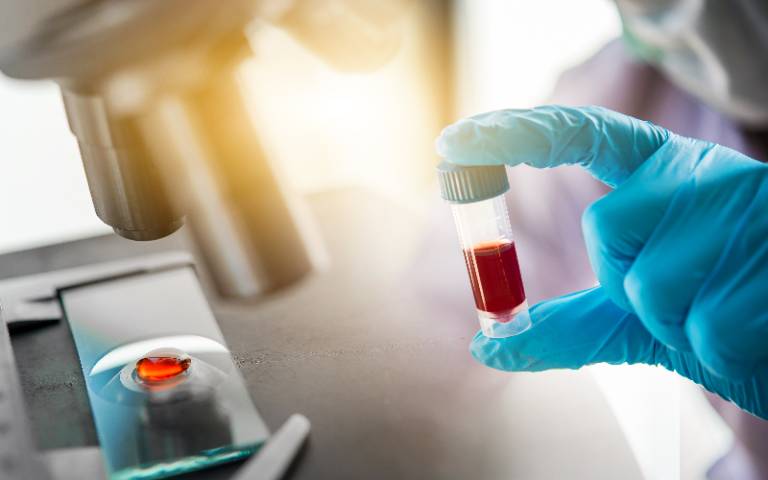Game-Changing Breakthrough: Blood Test Shows Promise as an Accurate Method for Alzheimer’s Disease Detection

The research, published in JAMA Neurology, found that the ALZpath’s Blood-Based Test was capable of detecting ‘p-tau217’, a form of the protein tau, which is a hallmark protein of Alzheimer’s disease.
People with Alzheimer’s have a build-up of proteins known as amyloid and tau in their brain, which is one of the main ways to detect the disease. However, there is currently a limited availability of tests for research and clinical use.
Consequently, Alzheimer’s is generally diagnosed based on people’s symptoms, such as thinking or memory problems. And only 2% of people receive a dementia diagnosis through ‘gold standard’ methods, such as positron emission tomography (PET) scans or lumbar punctures.
Lumbar punctures are expensive and cost typically two to three times higher than blood-based testing. They are also more difficult to administer at the scale that will be required with the availability of a new generation of disease-modifying treatments. So, the researchers wanted to evaluate the use of the existing commercial blood test for p-tau127, ALZpath.
The ALZpath blood test was used in three independent clinical studies as part of an international collaboration, involving 786 participants.
The researchers found that the test showed a high diagnostic accuracy (~80%) in identifying elevated amyloid and tau in the brain across all cohorts.
These accuracies were significantly higher than other plasma biomarker combinations and equivalent to cerebrospinal fluid (CSF) biomarkers from lumbar punctures.
First author, Dr Nicholas Ashton (Gothenburg University), said: “If you’re going to receive [the new drugs], you need to prove that you have amyloid in the brain. It’s just impossible to do spinal taps and brain scans on everyone that would need it worldwide. So this is where the blood test [has] a huge potential.”
ALZpath makers are currently in discussions with UK labs to launch it for clinical use this year, and Professor Henrik Zetterberg (UCL Queen Square Institute of Neurology and University of Gothenburg), is making the assay available for research use as part of the UK Dementia Research Institute Biomarker Factory at UCL.
The Biomarker Factory is led by Professor Zetterberg with the aim of finding new ways to detect and monitor neurodegenerative disease.
Co-authors, Professor Zetterberg and Professor Kaj Blennow (University of Gothenburg), said in a joint statement: “This is an instrumental finding in blood-based biomarkers for Alzheimer’s, paving the way for the clinical use of the Alzpath pTau 217 assay.
“This robust assay is already used in multiple labs around the globe.”
Dr Sheona Scales, Director of Research at Alzheimer’s Research UK, said: “In the past year, we have seen incredible progress in the development of blood-based Alzheimer’s tests. And as we see more and more different types of tests becoming available, studies like this are key to understanding which are most accurate.”

